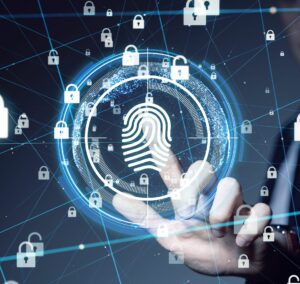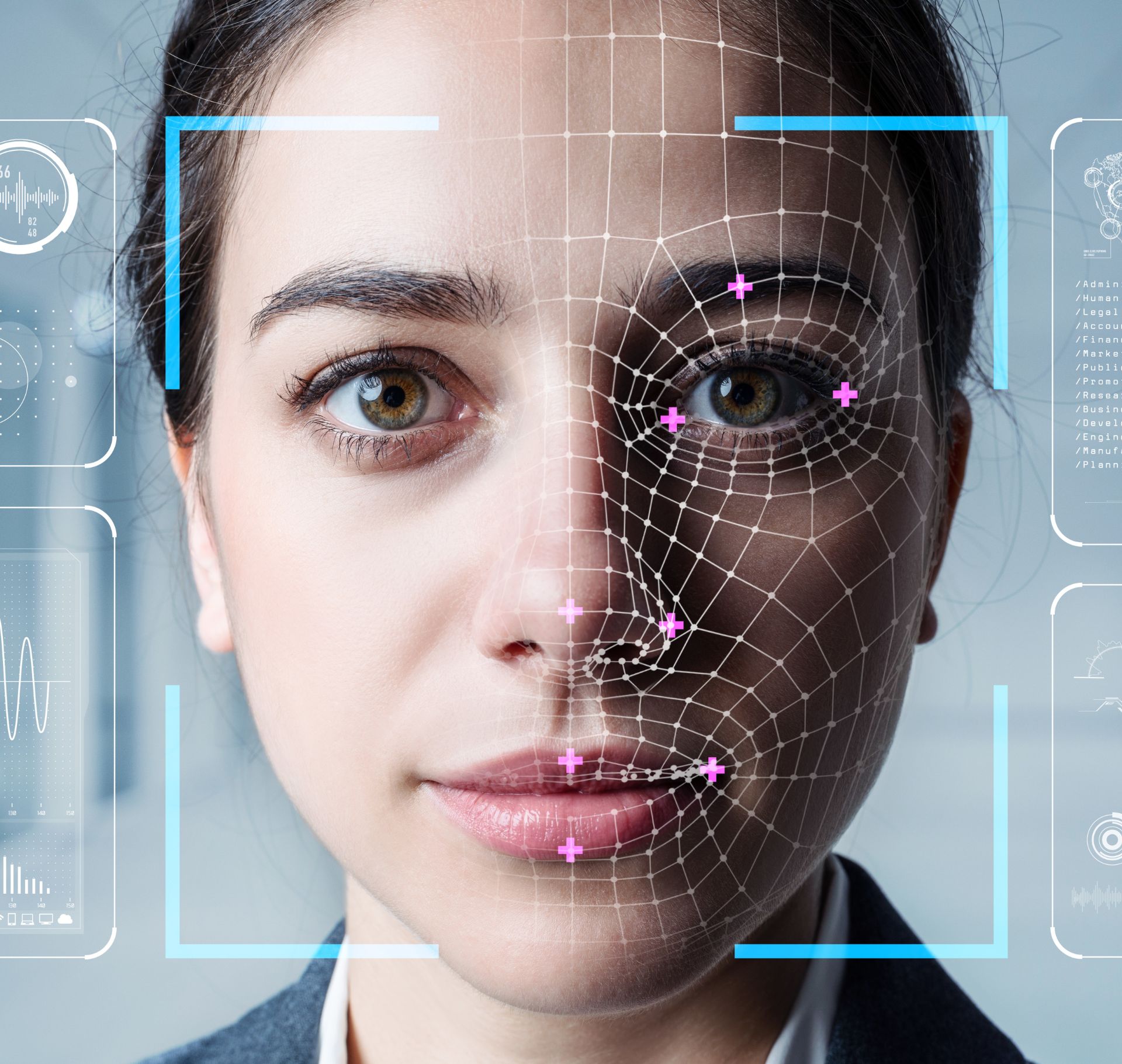The Evolution of Digital Locks: How Biometric Technology is Changing the Game
Digital locks have come a long way in revolutionizing security systems, and biometric technology is at the forefront of this evolution. Biometric digital locks have gained popularity in recent years due to their ability to provide enhanced security and convenience. By using unique physical and behavioral characteristics, such as fingerprints or facial recognition, these locks offer a highly accurate and reliable method of authentication.
One of the key advantages of biometric digital locks is their heightened security. Unlike traditional locks that can be easily compromised with keys or passcodes, biometric locks require a specific biological characteristic that is unique to each individual. This makes it extremely difficult for unauthorized access to occur. Additionally, biometric data is much harder to forge or replicate than traditional access methods, providing an extra layer of protection against identity theft or fraud.
Furthermore, biometric digital locks offer the convenience of quick and seamless access control. With traditional locks, individuals may need to carry around keys or remember complex passcodes. However, with biometric locks, all you need is your own unique biometric data, which is always with you. This simplifies the process of access and eliminates the need for carrying additional items or trying to remember passwords. In residential settings, for example, homeowners can enter their homes effortlessly by simply scanning their fingerprints or face, providing a hassle-free experience.
Enhancing Security with Biometric Data: Exploring the Advantages of Biometric Digital Locks
Biometric digital locks have revolutionized the way we ensure security in various settings, from residential homes to high-security establishments. One of the key advantages of these innovative locks is the use of biometric data, such as fingerprints or facial recognition, to grant access. By relying on the unique physical characteristics of individuals, biometric digital locks offer a higher level of security compared to traditional lock and key systems.
The main advantage of using biometric data in digital locks is the heightened accuracy and reliability that it provides. Unlike passwords or access cards that can be lost or stolen, biometric features are individual and cannot be easily replicated. This makes it extremely difficult for unauthorized individuals to gain access to restricted areas. Moreover, the advanced technology used in biometric digital locks ensures that false positives and false negatives are minimized, making them highly accurate in identifying individuals and granting access accordingly.
Another advantage of biometric digital locks is the convenience they offer. With traditional locks, keys can be easily misplaced, forgotten, or even duplicated. On the other hand, biometric data is unique to each individual, making it virtually impossible to forget or lose. This eliminates the need for carrying keys or remembering access codes and greatly simplifies the process of entering secure areas. Additionally, biometric digital locks can be easily integrated with other security systems, such as CCTV cameras and alarm systems, providing a comprehensive and efficient security solution.
Breaking Down the Different Types of Biometric Data Used in Digital Locks
When it comes to digital locks, one of the most intriguing aspects is the use of biometric data for authentication. Biometric technology has come a long way in recent years, offering a variety of methods to ensure secure access control. There are several types of biometric data commonly used in digital locks, each with its own unique characteristics and benefits. Fingerprint recognition is perhaps the most widely recognized form of biometric data. This method uses the unique patterns and ridges on an individual’s fingertips to confirm their identity. Not only is it highly accurate, but it is also convenient, as most people have their fingerprints readily available at all times.
Another common type of biometric data used in digital locks is facial recognition. This method relies on scanning an individual’s facial features, such as the shape of their eyes, nose, and mouth, to determine their identity. While it may not be as widely adopted as fingerprint recognition, facial recognition has been gaining popularity due to its non-invasive nature and ease of use. It’s worth noting that there are other types of biometric data used in digital locks, such as iris recognition, voice recognition, and even DNA analysis. Each of these methods offers its own set of advantages and drawbacks, and the choice of which one to utilize ultimately depends on the specific needs and requirements of the user.

Are Biometric Digital Locks Really Secure? Debunking Common Myths and Concerns
Biometric digital locks have gained significant popularity in recent years due to their perceived high level of security. However, there are common myths and concerns surrounding their effectiveness. Let’s debunk some of these misconceptions and explore the real security measures behind biometric digital locks.
One common myth is that biometric digital locks can be easily hacked or fooled by replicating someone’s fingerprint or facial features. While it’s true that there have been instances of successful hacking or spoofing attempts, modern biometric digital locks have stringent security measures in place to mitigate such risks. Advanced algorithms and encryption techniques are used to protect the stored biometric data, making it extremely difficult for unauthorized individuals to replicate or bypass the system.
Another concern is the fear of false positives or false negatives, where the biometric digital lock fails to recognize a legitimate user or mistakenly grants access to an unauthorized individual. While no security system is entirely foolproof, manufacturers invest significant resources in improving the accuracy and reliability of biometric authentication. Through continuous advancements in sensor technology and algorithm development, the chances of false positives or negatives are greatly reduced, ensuring that only authorized users can gain access.
Overcoming Challenges: Addressing the Limitations of Biometric Digital Locks
In the world of digital security, biometric technology has emerged as a game-changer. Biometric digital locks utilize unique physical or behavioral characteristics, such as fingerprints or facial recognition, to provide secure access control. While these locks offer enhanced security and convenience, there are some limitations to consider. One significant challenge is the potential for false positives or false negatives.
Biometric systems may occasionally fail to recognize a valid user or mistakenly grant access to an unauthorized individual. This can be particularly problematic in high-security settings, where even a single breach could have severe consequences. Moreover, external factors such as changes in lighting conditions or variations in an individual’s appearance can affect the accuracy of biometric authentication. As a result, it is crucial to implement robust algorithms and continually update and calibrate the system to minimize the risk of false readings.
Another limitation lies in the cost and complexity of implementing biometric digital locks. Unlike traditional lock systems, biometric locks require specialized hardware and software to capture, process, and store biometric data. This can result in significant upfront expenses, especially for large-scale installations. Additionally, there may be privacy concerns associated with storing personal biometric information, necessitating strict data protection measures to ensure individuals’ rights are respected. Balancing the need for security with cost-efficiency and privacy compliance is a key challenge that organizations must navigate when considering the adoption of biometric digital locks.
The Future of Biometric Digital Locks: Emerging Trends and Innovations
Biometric digital locks have revolutionized the way we secure our homes and businesses, but the future holds even more exciting possibilities. Emerging trends and innovations are already reshaping the landscape of biometric technology, promising even greater security and convenience. One key trend that is expected to gain momentum is the integration of artificial intelligence (AI) into biometric digital locks. With AI, these locks can continuously learn and adapt to user behaviors, making them more accurate and reliable in identifying individuals. This not only enhances security but also improves usability, as the locks can adjust their settings based on user preferences.
Another exciting development is the use of multi-modal biometrics, which combines multiple biometric factors for authentication. For example, a digital lock might use both fingerprint and facial recognition to ensure a higher level of security. This approach leverages the strengths of different biometric modalities and reduces the risk of false positives or negatives.
Furthermore, advancements in mobile technology are set to play a significant role. Mobile biometric credentials are becoming more prevalent, allowing users to access biometric digital locks using their smartphones or other mobile devices. This eliminates the need for physical cards or keys and provides a seamless user experience. As the future of biometric digital locks unfolds, it is important to keep in mind the tradeoffs involved. While these innovations offer greater security and convenience, there are also challenges to address. Concerns about privacy and data security must be carefully addressed to ensure widespread adoption of biometric technology.
Additionally, the cost of implementing these advanced features may pose a barrier for some consumers or businesses. In conclusion, the future of biometric digital locks holds immense promise. With AI integration, multi-modal biometrics, and mobile capabilities, these locks are set to become even more secure and user-friendly. However, it is crucial to navigate the tradeoffs and challenges associated with these advancements to ensure the widespread adoption and acceptance of this innovative technology.
Making the Right Choice: Factors to Consider When Choosing a Biometric Digital Lock for Your Needs
When choosing a biometric digital lock, there are several key factors to consider that will significantly impact your decision. One of the critical aspects is the level of security provided by the lock. Biometric technology offers an added layer of protection compared to traditional locks, as it relies on unique physiological characteristics such as fingerprints or facial recognition to grant access. However, it is essential to assess the accuracy and reliability of the biometric system to ensure the lock is truly secure.
Another important factor to consider is the ease of use and convenience of the biometric digital lock. While the primary purpose of a lock is to enhance security, it should also simplify access control for the users. Therefore, it is essential to choose a lock that has an intuitive interface and is user-friendly.
Additionally, consider factors such as the speed of recognition and ease of enrollment for new users. These aspects will determine how seamlessly the lock integrates into your daily routine and the overall convenience it provides. In conclusion, when choosing a biometric digital lock, it is crucial to balance factors such as security, ease of use, and convenience. By carefully considering these aspects, you can select a lock that meets your specific needs and provides the optimal level of security for your home or business.
Check Out Our Digital Lock Services Today
With the future of biometric digital locks looking bright, you need to know which locksmith service you can trust to bring this technology to your home. Luckily, our team at Mobile Locksmith is exactly who you need to bring your security needs into the future. Contact us today, and we will work with you to determine which biometric digital lock is the best option for your property.


